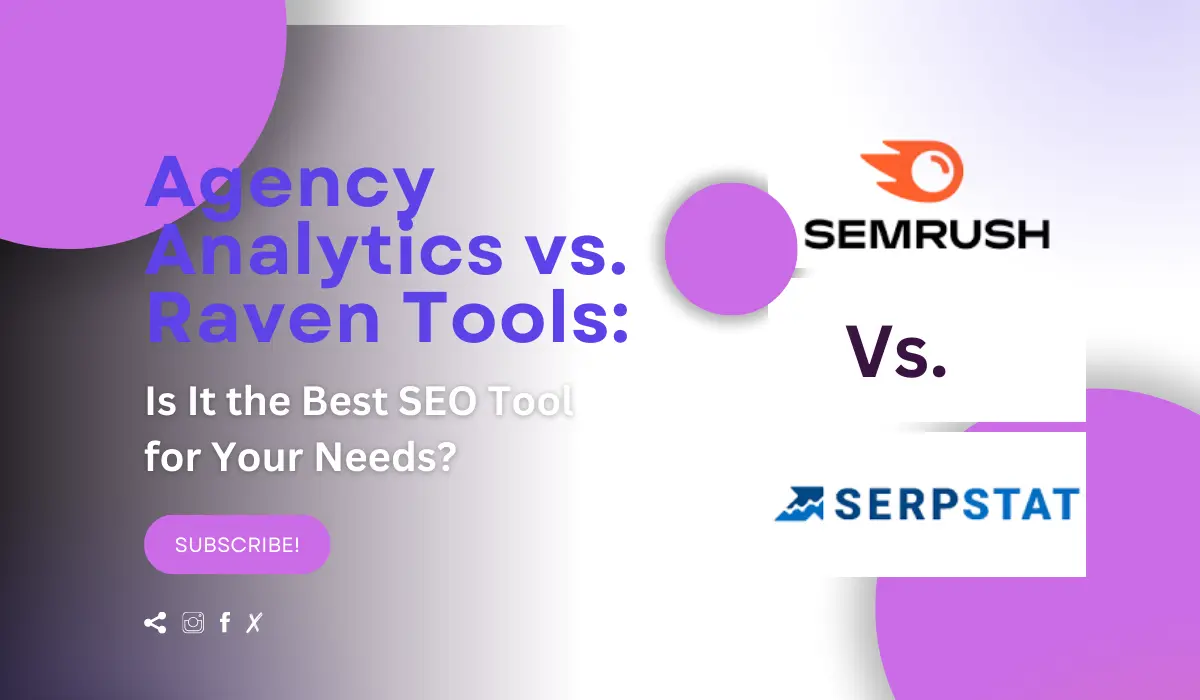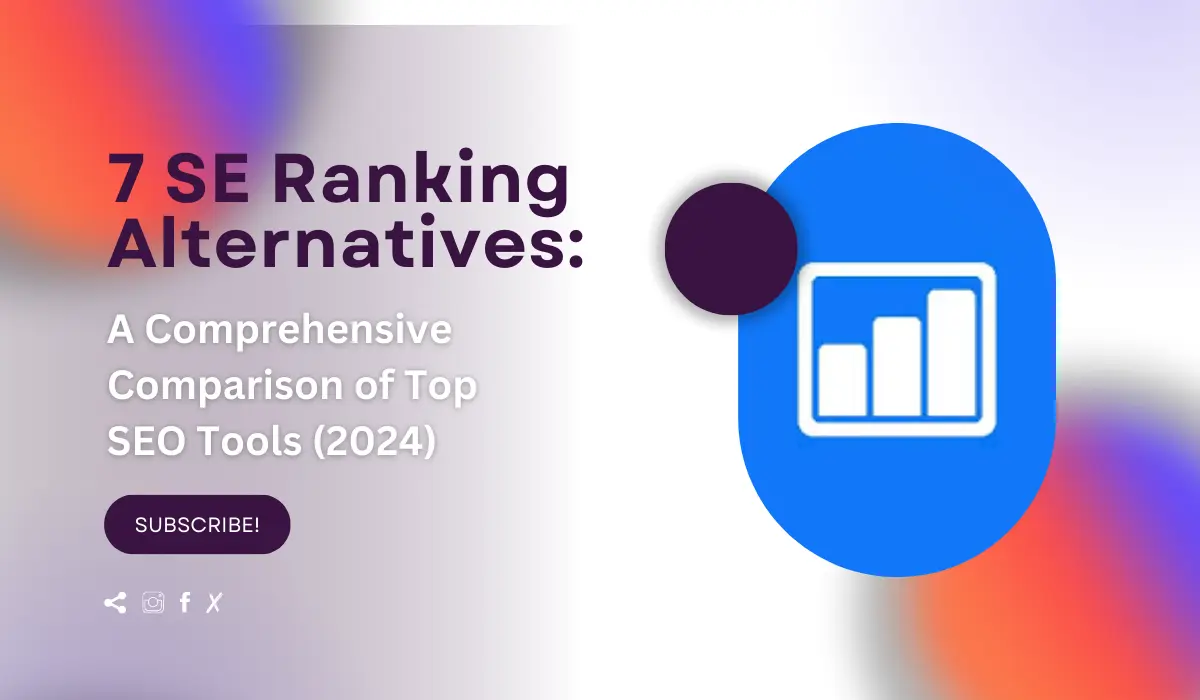1. Introduction to Semrush vs Serpstat
In the world of SEO and digital marketing, choosing the right tool can make a significant difference in the success of your campaigns. Two popular SEO platforms that often come up in discussions are Semrush and Serpstat. Both of these tools offer a wide range of features to help businesses improve their online visibility, track performance, and optimize their digital marketing strategies. In this Semrush vs Serpstat review, we’ll dive into the key differences between these platforms, covering their core features, pros and cons, pricing, user experience, and more.
Overview of Semrush
Semrush is one of the leading SEO and digital marketing platforms, known for its robust set of tools that cover everything from keyword research to backlink analysis, site audits, and competitive analysis. It is favored by professionals who need a comprehensive solution to manage their SEO, PPC, and content marketing efforts. Semrush is also widely recognized for its detailed competitor analysis capabilities, making it a powerful tool for digital marketers.
Overview of Serpstat
Serpstat is an all-in-one SEO platform designed for businesses of all sizes, offering tools for keyword research, rank tracking, backlink analysis, and site audits. While not as widely known as Semrush, Serpstat has steadily gained popularity due to its affordability and user-friendly interface. It is particularly appealing to small and medium-sized businesses looking for a cost-effective solution to improve their search engine rankings.
The purpose of this Semrush vs Serpstat comparison is to provide a detailed evaluation of each platform, helping you decide which tool is the better fit for your business needs.
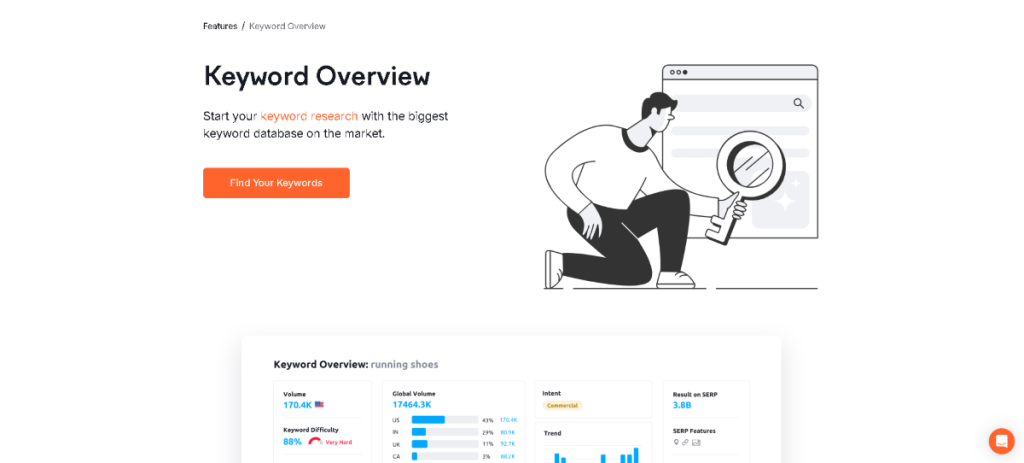
2. Semrush vs Serpstat: Pros and Cons
At-a-Glance Pros and Cons of Semrush
Pros:
- Extensive range of SEO and digital marketing tools.
- Advanced competitor analysis and keyword research capabilities.
- Comprehensive site audit and backlink analysis features.
- Detailed reporting options.
- Integration with a wide range of third-party applications, including Google Analytics and Google Ads.
Cons:
- Expensive pricing plans, especially for small businesses.
- The interface can be overwhelming for beginners.
- Certain features, like local SEO tracking, require higher-tier plans.
At-a-Glance Pros and Cons of Serpstat
Pros:
- Affordable pricing plans, ideal for small and medium-sized businesses.
- Easy-to-use interface, suitable for beginners.
- Solid keyword research and site audit tools.
- Good rank tracking and backlink analysis capabilities.
- Generous data limits on most plans.
Cons:
- Lacks some of the advanced features found in Semrush, particularly in competitor analysis.
- Limited integrations compared to Semrush.
- Customer support options can be less robust.
Detailed Analysis of Semrush’s Strengths and Weaknesses
Semrush stands out for its all-in-one approach to SEO and digital marketing, offering an extensive array of tools that cater to various needs. Whether you’re managing SEO, PPC, or content marketing campaigns, Semrush provides the data and insights necessary to make informed decisions. The platform’s competitor analysis capabilities are particularly strong, allowing users to uncover valuable insights about their competitors’ strategies. However, the pricing of Semrush can be a major drawback for smaller businesses or freelancers. Additionally, the user interface, while powerful, may feel overwhelming for beginners due to the sheer number of features available.
Detailed Analysis of Serpstat’s Strengths and Weaknesses
Serpstat’s main strength lies in its affordability and user-friendly design. It offers many of the core features found in Semrush, including keyword research, rank tracking, site audits, and backlink analysis, but at a much lower price point. This makes it an excellent option for small businesses and individuals who need a reliable SEO tool without breaking the bank. However, Serpstat does lack some of the more advanced features that are available in Semrush, particularly in areas like competitor analysis and detailed reporting.
3. Semrush vs Serpstat: Key Features and Services
Keyword Research in Semrush vs Serpstat
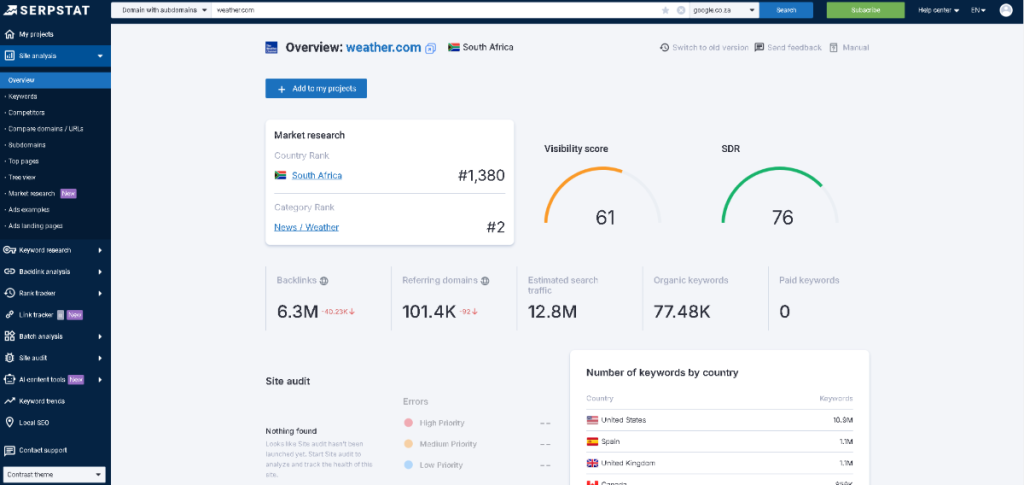
Keyword research is one of the most critical aspects of SEO, and both Semrush and Serpstat offer strong tools in this area.
- Semrush: The keyword research tool in Semrush is highly advanced, allowing users to find high-volume keywords, track their competitors’ keyword strategies, and discover related keywords. Semrush’s keyword magic tool is a standout feature, providing a vast database of keyword suggestions based on seed keywords.
- Serpstat: While not as comprehensive as Semrush, Serpstat offers a solid keyword research tool that provides keyword suggestions, search volume data, and competition analysis. One of Serpstat’s unique features is its ability to show keywords for different search engines, including Google, Bing, and Yandex.
Site Audit Tools in Semrush vs Serpstat
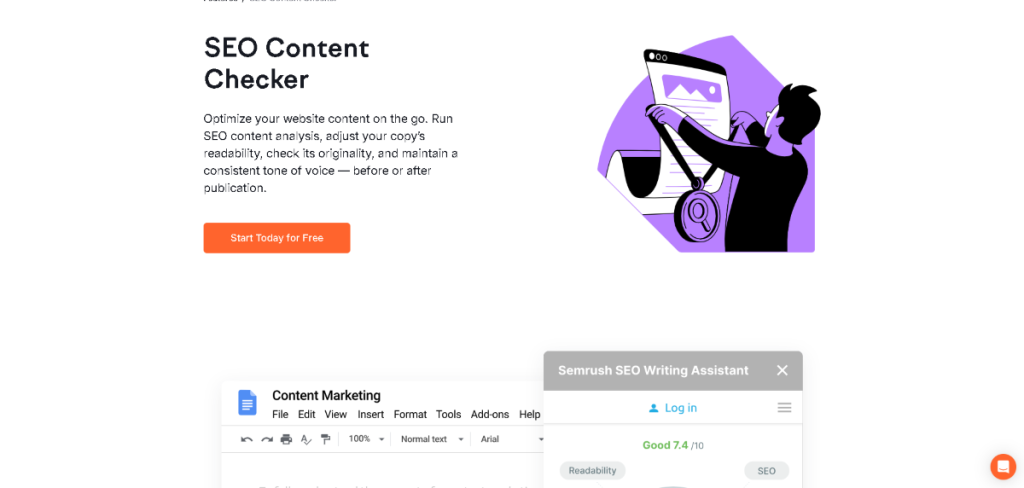
Site audits help identify issues on your website that could be affecting your search engine rankings.
- Semrush: Semrush’s site audit tool is one of the most comprehensive on the market, scanning for over 130 technical SEO issues, including broken links, missing alt text, and slow page speeds. The tool provides detailed reports and recommendations for fixing these issues, helping users optimize their sites for better performance.
- Serpstat: Serpstat’s site audit tool is also robust, offering insights into technical issues, including site speed, HTTP status codes, and indexation problems. While it doesn’t have as many features as Semrush’s tool, it provides more than enough data for most users to make necessary improvements.
Competitor Analysis in Semrush vs Serpstat
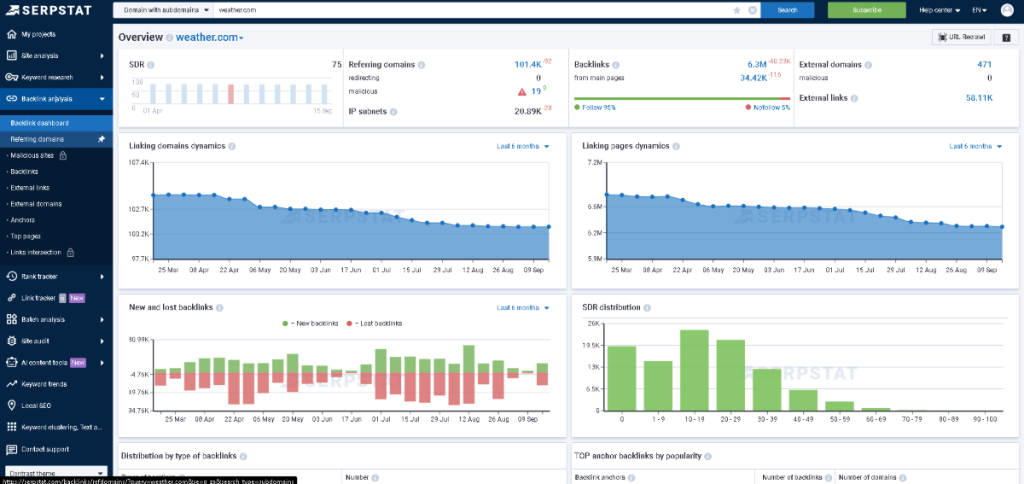
Competitor analysis is another area where both platforms excel, although there are differences in how they approach it.
- Semrush: Semrush is renowned for its competitor analysis features, which allow users to track their competitors’ organic and paid search strategies, identify their top-performing keywords, and uncover backlink opportunities. The platform also offers a market explorer tool that provides insights into your competitors’ overall digital strategies, making it an indispensable tool for digital marketers.
- Serpstat: While Serpstat offers competitor analysis features, they are not as extensive as Semrush’s. Users can see which keywords their competitors are ranking for and analyze their backlink profiles, but the level of detail is not as deep. That said, for small businesses with less complex needs, Serpstat’s competitor analysis tools are more than sufficient.
Backlink Analysis in Semrush vs Serpstat
Backlinks are a crucial factor in SEO, and both Semrush and Serpstat offer backlink analysis tools.
- Semrush: The backlink analysis tool in Semrush is incredibly detailed, providing users with insights into their backlink profiles, including the number of referring domains, anchor texts, and the overall quality of backlinks. Semrush also offers a backlink gap tool, which allows users to compare their backlink profile with their competitors to identify potential link-building opportunities.
- Serpstat: Serpstat’s backlink analysis tool is solid but not as feature-rich as Semrush’s. It provides users with information on their backlink profiles, including referring domains, anchor texts, and link strength. However, it lacks some of the advanced filtering and comparison options available in Semrush.
Rank Tracking in Semrush vs Serpstat
Rank tracking is essential for monitoring the success of your SEO efforts.
- Semrush: Semrush’s rank tracking tool allows users to monitor their website’s rankings for specific keywords across different devices and locations. The tool provides daily updates, making it easy to track the impact of SEO changes in real-time.
- Serpstat: Serpstat also offers a robust rank tracking tool, allowing users to monitor their rankings on different search engines, including Google and Bing. One of the standout features of Serpstat’s rank tracker is its ability to track rankings across multiple locations, making it a useful tool for businesses targeting specific geographic areas.
4. Semrush vs Serpstat: User Experience
Ease of Use in Semrush vs Serpstat
Both Semrush and Serpstat are designed to be user-friendly, but there are differences in their interfaces.
- Semrush: Semrush offers a powerful but complex interface that may take some time to get used to, especially for beginners. However, once users become familiar with the platform, they will appreciate the depth of features and customization options available. Semrush also offers extensive educational resources, including webinars, tutorials, and a knowledge base, to help users get the most out of the platform.
- Serpstat: Serpstat, on the other hand, is known for its intuitive and easy-to-use interface. The platform is designed with simplicity in mind, making it accessible to users of all skill levels. Serpstat’s dashboard is clean and straightforward, with all of the core features easily accessible from the main menu. This makes it an excellent option for beginners or users who prefer a more streamlined experience.
Customer Support in Semrush vs Serpstat
Both platforms offer customer support, but the level of support varies.
- Semrush: Semrush offers 24/7 customer support via chat, email, and phone. The platform also provides a wealth of educational resources, including webinars, tutorials, and a comprehensive knowledge base.
- Serpstat: Serpstat offers customer support via chat and email, but the support is not available 24/7. While the platform does provide a knowledge base and some tutorials, the level of support may not be as extensive as what is offered by Semrush.
5. Semrush vs Serpstat: Pricing and Plans
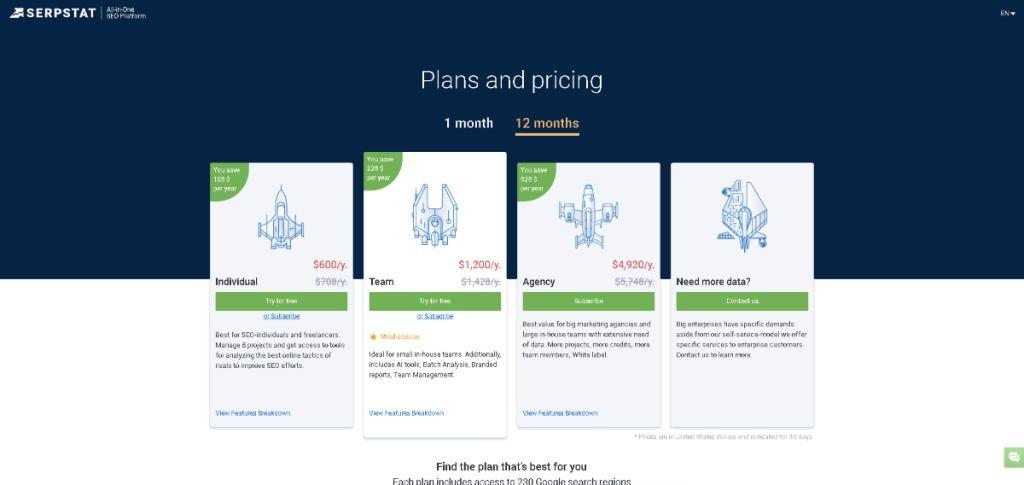
Detailed Pricing Overview of Semrush
Semrush offers several pricing plans, including:
- Pro Plan: $119.95 per month – This plan is suitable for freelancers and small businesses and includes access to most of Semrush’s core features.
- Guru Plan: $229.95 per month – This plan is designed for growing businesses and includes additional features like branded reports and historical data.
- Business Plan: $449.95 per month – This plan is ideal for large businesses and agencies, offering advanced features like API access and white-label reports.
Detailed Pricing Overview of Serpstat
Serpstat offers more affordable pricing plans, including:
- Lite Plan: $69 per month – This plan is suitable for individuals and small businesses and includes access to most of Serpstat’s core features.
- Standard Plan: $149 per month – This plan is designed for growing businesses and includes additional features like branded reports and API access.
- Advanced Plan: $299 per month – This plan is ideal for larger businesses and agencies, offering higher data limits and access to more advanced features.
6. Semrush vs Serpstat: Which Tool is Right for You?
Choosing between Semrush and Serpstat depends on your specific needs and budget.
- If you’re a digital marketing professional or agency that needs a comprehensive tool with advanced competitor analysis and reporting features, Semrush is likely the better choice. Its wide range of tools and features makes it a powerful option for businesses that require a full-suite digital marketing solution.
- On the other hand, if you’re a small or medium-sized business looking for an affordable and user-friendly SEO tool, Serpstat is an excellent option. While it may not have all of the advanced features of Semrush, it provides more than enough functionality for most users, particularly those focused on keyword research, site audits, and rank tracking.
7. Real-World Applications of Semrush and Serpstat
In this section, we will explore how Serpstat has been successfully implemented by various businesses to achieve remarkable results. These real-world case studies highlight the diverse applications of Serpstat in driving growth and enhancing SEO strategies.
Case Study: 20x Revenue Growth in 4 Months
Background: A company struggling with slow organic growth sought to overhaul its SEO strategy.
Solution: By utilizing Serpstat’s site audit, keyword research, and backlink analysis tools, the company identified new growth opportunities.
Results: In just four months, the company achieved a staggering 20x revenue increase, driven by improved site performance and better SEO tactics.
Read the full case study here.
Case Study: 6x Keyword Research Speed & 10x Visibility
Background: A multilingual business required a more efficient SEO process to expand internationally.
Solution: Using Serpstat’s multilingual keyword research tools, the company was able to speed up its workflow while simultaneously increasing search visibility.
Results: The business saw a 6x improvement in keyword research efficiency and a 10x boost in search visibility.
Read the full case study here.
Case Study: SEO Insights with GPT-4
Background: A business wanted to leverage advanced AI to enhance its SEO strategy.
Solution: Serpstat integrated with GPT-4 to provide actionable insights and improve content relevance for the company’s SEO efforts.
Results: The combination of Serpstat and GPT-4 led to significant improvements in keyword ranking and content relevance, helping the business stay competitive.
Read the full case study here.
8. Final Verdict on Semrush vs Serpstat
In conclusion, both Semrush and Serpstat are powerful SEO tools that offer a range of features to help businesses improve their search engine rankings and digital marketing efforts. Semrush is the more comprehensive option, with advanced features and a wider range of tools, but it comes with a higher price tag. Serpstat, on the other hand, is a more affordable option that still offers a robust set of features, making it an excellent choice for small and medium-sized businesses.
Ultimately, the choice between Semrush and Serpstat comes down to your budget and the specific features you need. If you’re looking for the most advanced SEO and digital marketing tool, Semrush is the way to go. However, if you’re looking for a cost-effective solution that still offers solid SEO capabilities, Serpstat is an excellent alternative.
8. Frequently Asked Questions (FAQs) about Semrush vs Serpstat:
Is SimilarWeb better than Semrush?
Semrush and SimilarWeb serve different purposes, making direct comparisons challenging. Semrush excels in SEO, keyword research, PPC, and content marketing, offering a comprehensive suite of tools for digital marketers. SimilarWeb, on the other hand, focuses more on traffic analytics, competitive research, and understanding user behavior on websites. If you’re looking for detailed traffic insights and market research, SimilarWeb might be better, but for SEO and PPC, Semrush is the superior tool.
Is Google Analytics better than Semrush?
Google Analytics and Semrush complement each other rather than directly competing. Google Analytics focuses on providing insights into user behavior on your own website, tracking metrics like session duration, bounce rate, and conversion tracking. Semrush, meanwhile, provides insights into SEO, competitor analysis, and keyword research. Both tools are powerful in their respective domains: use Google Analytics for on-site data and Semrush for external SEO and competitive insights.
Is SpyFu better than Semrush?
SpyFu is primarily focused on PPC and competitor analysis, whereas Semrush offers a broader range of features including SEO, keyword research, backlink analysis, content marketing, and PPC. While SpyFu is more budget-friendly and excels at specific competitive intelligence features, Semrush provides a more comprehensive marketing toolset, making it better for users who need an all-in-one solution.
Why is Semrush better than Moz?
Semrush offers more advanced features and a wider range of tools compared to Moz, particularly in areas like PPC management, competitor analysis, and content marketing. While Moz is known for its user-friendly interface and excellent local SEO features, Semrush delivers more comprehensive data, including keyword research, backlink tracking, and site auditing. Semrush‘s more frequent updates and larger database make it a more robust tool for digital marketers looking for detailed insights.
What is the best keyword research tool?
The best keyword research tool depends on your specific needs. Semrush is often regarded as one of the best overall tools for keyword research due to its large database, accurate data, and additional features like keyword difficulty and competitive analysis. Ahrefs is another excellent tool for keyword research, known for its vast backlink database. Google Keyword Planner is also a solid option for basic keyword insights, especially for PPC campaigns.
How accurate is Semrush?
Semrush provides fairly accurate data for SEO and keyword tracking, but like all tools, it can have limitations. Its data is based on sampling, meaning some estimates, especially for organic traffic or keyword difficulty, might not be 100% accurate. However, Semrush is considered one of the most reliable SEO tools in the industry, especially when combined with real-time tracking and competitor analysis.
Which tool is better to use in SEO: Ahrefs or Semrush?
Both Ahrefs and Semrush are excellent SEO tools, but their strengths differ. Ahrefs is known for its superior backlink analysis, and its keyword explorer is also highly praised. Semrush offers a more rounded solution with features not just for SEO, but also for PPC, content marketing, and competitive analysis. If you prioritize backlink data, Ahrefs may be better, but for an all-in-one marketing tool, Semrush is usually the preferred choice.
Who is better than Semrush?
While Semrush is one of the top all-in-one marketing platforms, alternatives like Ahrefs, Moz, and Ubersuggest may be better in specific use cases. Ahrefs is favored for backlink analysis, Moz for local SEO, and Ubersuggest for budget-conscious users. Ultimately, the “better” tool depends on your specific needs, such as pricing, SEO features, or ease of use.
Why is Semrush the best?
Semrush is considered one of the best SEO and digital marketing tools because it offers a comprehensive suite of features, including keyword research, competitor analysis, PPC tracking, backlink analysis, site auditing, and content marketing tools. Its large database, accurate data, and ability to cover multiple aspects of digital marketing make it an essential tool for businesses and agencies. Moreover, its frequent updates and user-friendly interface allow marketers to stay on top of trends and quickly adapt to algorithm changes.

